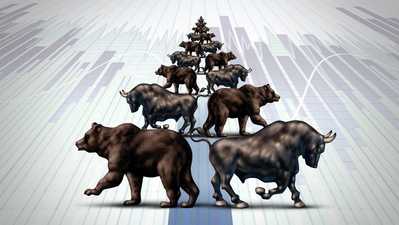| Home | About | Archives | RSS Feed |

@theMarket: Stocks Grind Higher
 |
The major indices have been working higher over the last few weeks, while rotation among sectors continues unabated. The higher markets climb, the more investors begin to question how long the bull market can sustain its upward trajectory.
"Thin" would be the way I would describe the movement upward in the S&P 500 Index. The same term could be used for the slight downward drift in the NASDAQ and technology stocks in general this week. It is August, after all, and volumes dry up as many on Wall Street take vacations.
Technically, we are trading in the middle of a monthly range in many sectors. A cursory view of some of the sectors reveals that semiconductors and FANG stocks are weakening, transportation, materials, and industrials are gaining, and retail and small caps are basically flat. Large cap stocks, in general, are outperforming all others.
Commodities like oil and precious metals have been taken out to the woodshed over the last week. The main trigger for this downdraft has been the strengthening U.S. dollar as well as rising yields in the bond market.
Remember, the greenback is a safe haven when times are uncertain. The explosion in the number of Coronavirus Delta variant cases worldwide has foreign investors flocking to the dollar. A strong dollar hurts commodities, since they are priced in U.S. dollars and therefore makes the price of commodities more expensive.
Friday's (Aug. 13, 2021) U.S. consumer sentiment data didn't help the mood. Sentiment plunged to the lowest level in almost a decade as Americans grew more concerned about the surge in Coronavirus and its potential impact on the economy.
Good news on the infrastructure front helped counter some of those concerns. The materials and industrial sector got a lift, although the passage of the $1 trillion plan was already baked in to stock prices for the most part. Next up, we can look for the debate over the $3.5 trillion, anti-poverty, climate plan, which is expected to be a Democrat-only initiative. That initiative includes tax increases for the wealthy and for corporations. It will need to go through a special process called reconciliation as part of a budget resolution.
Republicans have already dissed the plan, protesting that it will add to the inflation rate (doubtful), and increase costs to the American family (specifically, those who make more than $450,000 annually). But there is no guarantee that the progressive and moderate/conservative wings of the Democratic Party will come to an agreement on this initiative.
Touted as the largest expansion of the nation's safety net since the "Great Society" of the 1960s, the proposal will require compromise on both sides of the Democratic Party. Some question whether it can be done. I suspect that President Biden is up to the task. He is the first President in decades to forge a bi-partisan infrastructure program with a deeply divided Congress.
Over in the bond market, traders have been pushing yields higher in advance of the Jackson Hole Economic Symposium scheduled for Aug. 26-28, 2021. Every year, investors eagerly await the speech of the Federal Reserve Bank Chairman hoping to pick up clues as to the Fed's next policy move. They should know by now that this is an international symposium of central bank leaders. It is not a Federal Open Market Committee meeting. The FOMC meeting is the appropriate place to announce and discuss U.S. policy. That will happen in September 2021 and will likely include some more information on when Fed bond buying may begin to taper.
Some question whether the taper will occur at all as long as we continue to face the onslaught of the Delta variant. Overseas, the pandemic is continuing to delay and cause new bottlenecks in the global supply chain. China, for example, just shut down the world's third largest shipping port due to a coronavirus quarantine.
As for the markets, I still believe we can eke out another 100 points or so in the S&P 500 Index, although we are heading into the worst seasonal period of the year for stocks. As has been the case all year, the market's fate is intricately dependent on the progress, or lack thereof, of the coronavirus.
Bill Schmick is the founding partner of Onota Partners, Inc., in the Berkshires. His forecasts and opinions are purely his own and do not necessarily represent the views of Onota Partners Inc. (OPI). None of his commentary is or should be considered investment advice. Direct your inquiries to Bill at 1-413-347-2401 or email him at bill@schmicksretiredinvestor.com.

